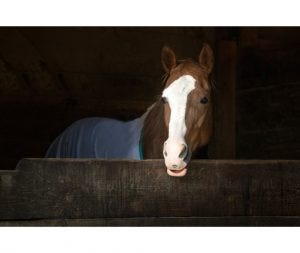We use cookies to make your experience better. To comply with the new e-Privacy directive, we need to ask for your consent to set the cookies. Learn more
How to avoid stable vices developing
Stable vices include biting, kicking, cribbing, & weaving. All are serious behavioral issues for horses. Rather than thinking stall vices as bad behavior consider health issues as a possibility. Try to avoid the vices developing certainly to keep your horse healthy.

How to avoid stable vices
Stable vices are very troublesome. Importantly the behavior good possibly harm the horse or other people.
1. Good Company
Horses are naturally social creatures who enjoy the company of other horses. It is stressful when taken from the herd or introduced to new horses. Provide companionship with as many other horse or other animals like cows, sheep or goats
2. Turn Out
Turn out as much as possible to avoid stable vices. Roaming free in pastures will provide exercise, fresh air and access to fresh grass.
3. Proper Diet
Horses should receive diet that is high in forage but at the same time provides him with the complete nutritional requirements. If horses are not given forage, behaviors such as wood chewing may develop. If it is difficult to let your horse graze freely on a pasture, provide him small, frequent meals instead of bulk feedings.
4. Proper Training
Training a horse to be well-mannered is a good idea, but it also depends on the type of training being used. Owners should decide which method is to be used. Making sure it benefits both the owner and the animal. Several training methods are available. However it is a good idea to choose ones that favors positive reinforcement.
Explore Potential Digestive Health Problems in Poorly-Behaved Horse
There are many reasons why a horse would develop and display poor behavior through stall vices. It could be issues in training, a learned behavior, or a history of abuse. Or simply an indicator that the horse is in great pain. There are instances when even though the horse is provided with an ideal environment, the right diet, and allowed to be with their social circle, they still manage to develop unpleasant behaviors.
Different reasons as to why horses can behave that way exist. If you see that you have done everything possible from your side, but still see that your horse acts inappropriately. It would be time to explore other possible causes like an injury or a health problem.
As you find more about the cause of the poor behavior, make sure to also consider digestive problems. Consult your veterinarian to analyze your horse’s feeding regime, care measures, or to perform any necessary test to confirm clinical issues.








Validate your login